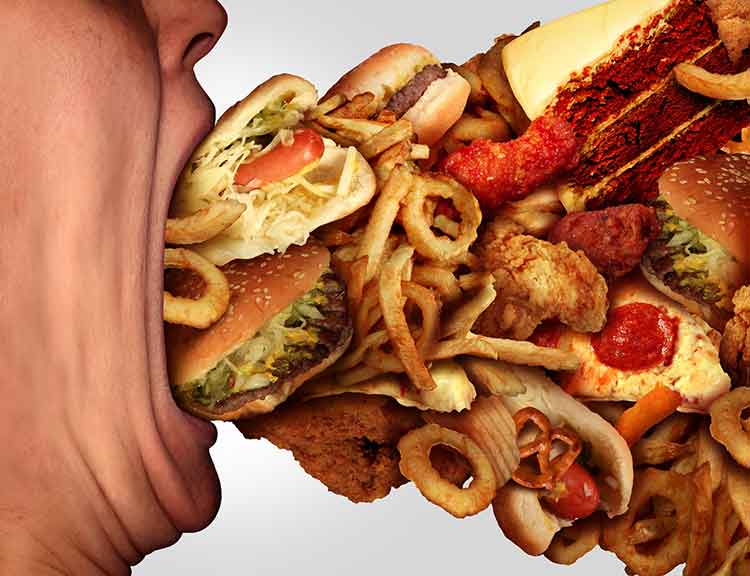In our everyday world, with food playing such an important part of our lives, is it any wonder that it can make a difference between our overall wellness and mental health concerns… Not because of what we are consuming, but rather how much. Eating disorders are perpetrated by consumption of either excessive food or insufficient food. Some of the common disorders of the eating kind are anorexia nervosa, bulimia and binge eating.
While eating too little may be blamed on body image concepts floated by the media, what is the trigger behind binge eating?
All of us are guilty of binging at some time or the other, depending on our hunger level or the food laid out for lunch/dinner. In the face of ones favourite food it is, sometimes, difficult to stop even when the hunger groan has turned into a loud burp. But binging of the ‘disorder’ kind goes beyond the occasional binges. It is compulsive overeating or consumption of abnormal amounts of food; it is that unstoppable feeling when food is laid out…a loss of control over oneself. It becomes a disorder if such thing happens a minimum of twice a week over a six month period. The obvious aftereffect of this is obesity, which is believed to indirectly lead to further compulsive eating. Another, very difficult to overcome effect of binging, is the feeling of disgust and guilt it breeds in the person, at times leading to depression and anxiety. Often, this turns into a vicious circle as more food is consumed in a negative coping mechanism.
So what exactly causes binge eating?

The answer to that could be biological, psychological or social. Biological cause may be attributed to hormonal irregularities or genetic mutations that may be associated with an addiction for food. Psychological causes are more common and are triggered by a variety of factors – psychologists have found a strong correlation between depression and binge eating. It may also be brought about by body image concepts that lead to body dissatisfaction and low self-esteem. Social factors may be attributed if the binge eating disorder is triggered social pressures or even some past memory and food is used as a remedy for emotional relief.
While the obvious sign of binge eating is overeating, there are tabulated symptoms that signal binge eating disorder. Some of the symptoms include:
- Continuing to eat even when the stomach is full
- Lack of control over eating
- Hoarding food to eat while no one is noticing
- Eating the right portions in company of others, but gorging when alone
- Using food to relieve stress
- A feeling of numbness while bingeing
Often, overeating is seen as harmless in the initial days and many may even be indulged by parents and family members, not realising that it could get out of control. Binge eating needs to be stopped at the earliest, as the consequences are not just about excess weight and the associated problems of movement. Some of the complications arising out of binge eating are:
- Cardiovascular disease
- Type 2 Diabetes
- Insomnia or sleep apnoea
- Hypertension
- Gallbladder disease
- Muscle and joint pain
- Gastrointestinal difficulties
- Depression and/or anxiety
Treatment options:

Treatment is said to be challenging, as feelings of guilt and shame, often, do not allow the person to admit that he/she has a problem. It is effectively hidden and even people in the family and friends’ circle may be unaware of the problem. This calls for a proper treatment plan and may involve a combination of strategies to help the person gain control over the everyday behaviour of eating. Psychotherapy, medication and even nutrition counselling is suggested to help overcome the disorder.
Psychotherapy relies on individual counselling that is aimed at changing the person’s thinking patterns as well as behavior by developing healthier attitude to food. This could be followed with nutrition counseling to teach the person the importance of nutrition and a balanced diet and restore normal eating habits. Medication is also prescribed, if needed, to reduce the episodes of binge eating.
In addition to these, what is important, perhaps more than any other treatment method, is family support. With the help of a psychologist, the person could undergo a group or family therapy to make the treatment effective. This will also help the family members and even close friends understand the disorder and assess the symptoms, so as to provide better support.
